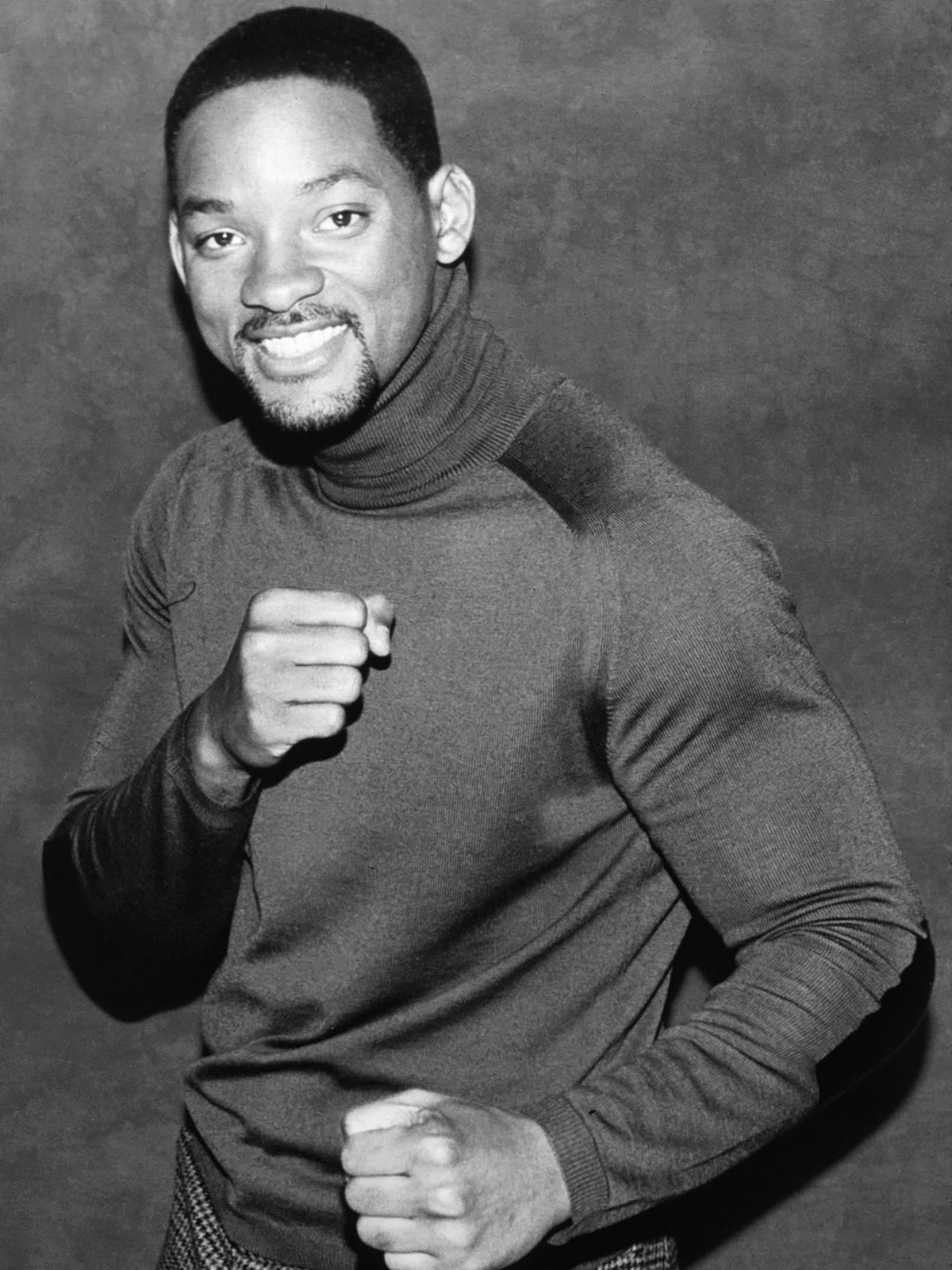
- Golden Globe Awards
Will Smith, 2001: The Road to Become Muhammad Ali
Will Smith offered some insight on Muhammad Ali – having spent time with the boxing champion during the shooting of Ali, directed by Michael Mann – when he spoke to the journalists of the Hollywood Foreign Press on the set in Miami in 2001, then in Los Angeles a few weeks before the film’s release.
“Three or four days out of the month, Ali will come and hang out on the set, and he seems to be very happy up to this point. Now, how weird must that be to watch someone play yourself, and even at sixty-years-old he’s most impressed by himself. He’s so in love with the project and with the team of people that are doing it, and that is my fuel every day, just to see that look in his eyes, because a part of me or the whole of me wants him to love it. These two years will be pointless if he doesn’t love it, it’s really important to me first and foremost that Muhammad Ali and his family love the film, secondly, there are wonderful spiritual messages and social commentaries, that I hope people find some enjoyment from.”
“The weird thing about playing Ali is that he actually is a performer, and still today, when he gets in a crowd, his eyes light up. We spent a lot of time together, and listening to him, from the jokes that he tells, he’s very much like a boxer even in the way that he speaks. There’s a jab, and he responds, he waits to defend himself and then he’ll hit you with a flurry of jokes, then goes back for a minute and lets you respond. It’s very clear in his relationship with Howard Cosell that he really looks at the interaction almost the way a fighter does, except that, when he’s having the verbal exchange, it’s not about taking you down, it’s more about bringing you in close and making you feel his warmth.”
“This film took us through South Africa, Mozambique and Ghana, and going into Africa I had a similar reaction that Muhammad Ali had, the emotions I was feeling weren’t unlike the emotions that Ali must have felt. When you go from being a Black man in America, where you live in probably about a 13% minority, to a 99% majority in Mozambique, what it does is like having the yoke of racism removed and living in a space where your color isn’t an issue. It’s really a small thing but it has huge reverberations in your mind.”
“I don’t believe that our outlooks on the world are that drastically different, in our points of view on family, on pain, on religion, Muhammad Ali and I don’t disagree too much. He’s a living legend, with his spirit and that commitment to God, you can feel the comfort that he has in his life, and whatever his God has in store for him, he’s more than comfortable to accept it and live with it, to stand up and walk side by side with his God. That was enough for him to get his mind back together and to win. That is at the center of this story, what is most emotional and most powerful about Ali.”
“It emotionally feels really special to have a film like Ali coming out in this time post-September 11, a film that means something, that has social messages, that has at its center a spiritual figure who was completely dedicated to his God and showing how the strength of that dedication got him through difficult times. There’s something that people can take away from this film that’s desperately needed in this specific time.”

